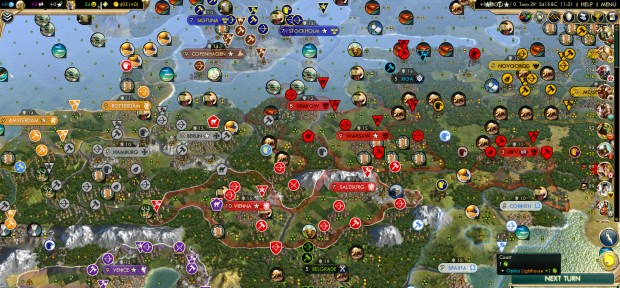
Consistently, it’s rare to see players founding new cities after this point anyway. This cutoff is somewhat arbitrary, but it represents the time (on quick speed) after which new cities don’t tend to contribute much to the game. I have therefore decided to use the number of cities at turn 100 as a proxy for the number of cities in the overall strategy.

However, cities conquered during the late game won’t really tell us much about the effect of wide or tall builds on winning. A city founded or conquered in the first 100 turns will have plenty of time to contribute valuable gold/culture/science to the game. In order to think about this, we need to make an important distinction. With that said, let’s dive in to the data. It’s possible that things might also apply to other multiplayer players, but I’d caution against assuming that we can learn anything about the single player experience. This therefore means that any conclusions we try and draw from the data really only apply to FilthyRobot as a player. To do this, I turned to my dataset of game data from the multiplayer streamer FilthyRobot(see the about pagefor more info if you are new to this site). So I decided to see if there was any relationship between the number of cities founded and the likelihood of winning.

This made multiplayer very interesting, as players had to make important decisions between expanding and conquering, or sitting back and trying to win with more peaceful tactics. The result of these changes was that empires with a smaller number of cities were equally as viable, or even superior to large sprawling empires.

#CIV V WORLDBUILDER CITIES DONT SHOW SERIES#
With the announcement of Civilization VI, I have no doubt that this discussion will once again take centre stage amongst fans of the series when the new game releases.įor the first time in the civilization series, Civilization V added penalties to the founding of new cities a global happiness limit, an increase in technology cost, and brutally expensive national wonders for large empires. Perhaps the most talked about aspect of Civilization V is how the game completely transformed the balance between tall (a few large cities) and wide (many smaller cities) strategies.


 0 kommentar(er)
0 kommentar(er)
